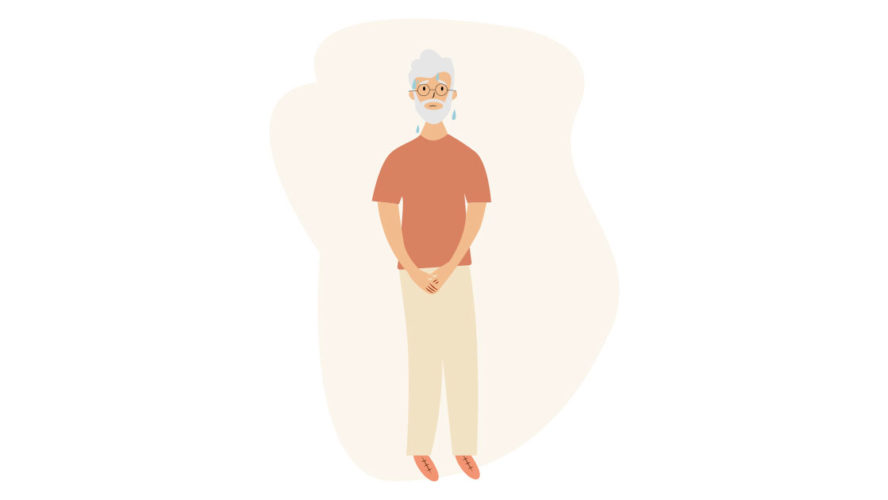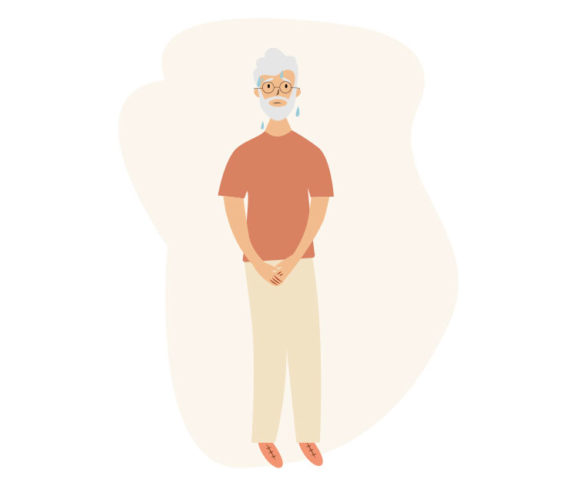“I wish my doctor had just told me this could happen to me.” At National Association for Continence (NAFC), we hear it all too often from men experiencing bladder leakage following prostate surgery.
Unfortunately, consequences following surgery seem less important than surgery to correct a cancer diagnosis. The good news is there are solutions that can make a meaningful difference in severity and recovery time.
One of the first questions we get at NAFC is “why did this happen to me?” Truthfully, there are a variety of possible reasons. Let’s start with some anatomy. The prostate is located just below the bladder and surrounds the urethra. Often, removing the prostate damages the nerves and muscles of the bladder, urethra, or the sphincter, which controls the passage of urine from the bladder. Once these structures are changed or damaged, the possibility of leaking is increased.
In addition, radiation used to treat prostate cancer can sometimes impact the normal tissues surrounding the urethra, urinary sphincter, and bladder. Radiation exposure can cause these tissues to be irritated, which may lead to incontinence. Often, this diminishes after several months following exposure. However, if the leak persists, the options below may help.
Solutions for bladder leakage
The severity of bladder leakage varies from full incontinence to light dribbles. The degree of severity depends on factors such as amount of damage to the nerves and structures surrounding the bladder. Sometimes leakage occurs when doing certain activities like working out, lifting heavy objects, or moving from sitting to standing.
Typically, the amount of leakage begins to lessen as the time to recovery increases. It is also reasonable to look for absorbent products that can protect you from an accident. There are a variety of absorbent products available that range in the degree of protection from light leakage (pads) to more severe incontinence (pull-ups). The NAFC Trusted Partners have a wide range of products and support personnel to help you find the right product for you. We would suggest checking them out.
The good news is that bladder leakage following prostate surgery may go away as the muscles of the pelvic floor get stronger, and only about 6-8% of men will experience bladder leakage according to Cleveland Clinic. Most of those who experience bladder leakage have symptoms from 6 months to a year. For most men, the symptoms diminish within a year, but this an depend on the commitment to strengthening the pelvic floor and the severity of the leakage
Next steps
But what can you do should this happen to you? First, have a conversation with your physician about what you are experiencing and ask what can be done to mitigate the issue. Most likely, the first step will be starting a routine of exercises designed to strengthen the pelvic floor. To stop bladder leakage, most men are advised to start a program of kegel exercises. These exercises are designed to strengthen the pelvic floor. The muscles of the pelvic floor help control bladder and bowel functions, and, if weak, then they can no longer do their job effectively. Fortunately, kegel exercise can be done at any time or any place and requires no special equipment. However, it is important do them correctly. Some men may choose to use biofeedback to ensure they are doing the exercises correctly or electrical stimulation can be used to reteach the muscles to contract. And, of course, a good pelvic floor physical therapist can be invaluable.
The NAFC message boards are a great way to connect with others who may also be experiencing incontinence due to prostate surgery or other conditions. They’re free to join and the forum is anonymous, so you can speak freely without the worry of feeling embarrassed or ashamed. We encourage you to check it out!

